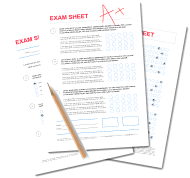Wow, I learned a lot from this article.
IELTS Writing Task 2 Structure of All Essay Types
Last updated: Dec 30, 2025Knowing how to correctly follow the IELTS writing task 2 structure of different essays can be the real deal cracker in band score. Understanding essay questions, generating good ideas quickly, using the right words, and organizing the thoughts parallel without sufficient knowledge and smart practice is nearly impossible. To help you with this, in this guide, we will cover the specifics of Task 2 essay writing. So let’s begin with the basics.

Table of Contents
A Quick Brief on IELTS Writing Task 2 Structure!
The IELTS writing task 2 structure, format, and style depend on the type of essay. This test refers to the essay writing section in the IELTS (International English Language Testing System) exam. It is conducted as part of both the Academic and General Training modules. Task 2 essays in IELTS typically require you to discuss a given topic, present an argument, or analyse a particular situation. These essays assess your ability to organise ideas logically, support arguments with evidence, and demonstrate proficiency in English language usage.
The IELTS exam typically lasts around 2 hours and 45 minutes. However, the essay writing section is usually the last part of the IELTS exam pattern and lasts for 40 minutes. Thus, you are required to complete two tasks within this time frame while following writing task 2 in IELTS.


IELTS Writing Task 2: Essay Structures for Different Types!
In IELTS writing task 2 essays, there's a wide range of types to tackle, from expressing opinions to analysing problems. However, they all can be categorised into the five main types. Understanding these differences will get the task of preparing halfway done. Let's dive into the structure and examples of each essay type and how to attempt them differently.
Opinion Essays:
In an opinion essay, you have to express your thoughts about a topic. Start by stating your opinion clearly, explain why you think that way with reasons and examples, and finally sum up your opinion again in the conclusion.

IELTS Task 2 Structure of Opinion:
- Introduction (Introduction of the topic and thesis statement)
- Body Paragraphs (Arguments supporting the opinion)
- Conclusion (Restate the opinion and summarise key points)
Tips for Opinion Essays :
- Provide balanced arguments
- Use linking words to connect ideas
- Support your opinion with examples or evidence
Example of Opinion Essays:
Topic: Are zoos beneficial or harmful to animals?
The world has been a constant witness to animal cruelty, regardless of their habitat. Moreover, animal safety has been a concern for animal rights groups for ages. Creatures kept in zoos or biological parks for the public to see are in the worst conditions. Yet, some assert that zoos or caged parks can benefit the animals. I believe zoos raise a lot of eyebrows when it comes to being beneficial to the animals.
Firstly, I think that animals are most comfortable in the land they belong to. The environment of a forest, ocean, or sky will differ from that of the zoo, aquarium, or cage, respectively. Natural settings not only grant them freedom but also teach them important adaptation skills. Although many sanctuaries and zoos keep animals foreducationale purposes and to conserve the endangered species of the animal kingdom, I doubt their intentions.
Zoos generate a huge sum of money through tickets from visitors and tourists. Many also set up animal play shows. However, most of the zoos in our country lack the necessities for the animals kept there. Moreover, several suffer from malnutrition, abuse, and starvation.
Finally, it is the government or private organizations who tend to build these zoos. As I see it, the only creatures that benefit from zoos are humans. The ceaseless corruption and absolute negligence of the animals, whether rare or not, are unacceptable.
Advantage and Disadvantage Essays:
An advantage and disadvantage essay talks about the good and bad sides of something. You have to discuss the advantages in one part and the disadvantages in another. Each part has examples and explanations. At the end, you could briefly talk about both sides again.

Task:2 Structure of Advantage and Disadvantage Essay:
- Introduction (Introduction of the topic and thesis statement)
- Advantage(s) (Explaining advantages with examples)
- Disadvantage(s) (Explaining disadvantages with examples)
- Conclusion (Summarise advantages and disadvantages, and express an overall opinion if required)
Tips for Advantage and Disadvantage Essay:
- Provide equal attention to advantages and disadvantages
- Use a variety of vocabulary to express benefits and drawbacks
- Maintain a neutral tone
Example of an Advantage and a Disadvantage Essay
Topic: Explain the benefits and drawbacks of renewable energy sources.
Many maintain the opinion that renewable energy sources are the best way to produce energy. However, there are pros and cons of such sources of power for the utility. There are overpowering cons that the world often neglects. Hence, the merits are the talk of the town. Yet, I will put in front both the merits and demerits of renewable energy sources.
One of the most manifest benefits of using renewable energy sources is that they don't cause any pollution. Moreover, they can never run out, as another one is that they are restored to nature without much time or any human interference. In addition to being easily available to all the humans in the world, they can be easily distributed to everyone. Furthermore, there are fewer storage concerns as they are stored and maintained by nature.
At the same time, most renewable energy companies have been misusing the population of African countries. There have been claims of abuse against children in mines and unequal distribution of the 'benefits' of renewable sources of energy. In addition to this, the amount of energy needed to convert unon-consumablerenewable energy into consumable energy is still huge. Moreover, many of these depend on the weather conditions of the place. For instance, water is a renewable source of energy. However, in some of the regions in the torrid zone, rainfall is scarce.
In conclusion, the benefits of using renewable sources of energy can outweigh their demerits. It is vital to hold the ones controlling these accountable for abusing these resources. Yet, relying more on these can help the future generation.
Problem and Solution Essays:
A problem and solution essay looks at a problem and suggests ways to fix it. You have to describe the problem and why it's important. Then, offer practical solutions, explaining how they could work. Finally, you have to summarise the problem and solutions, stressing why they're important.

Task 2 Structure of Problem and Solution Essays:
- Introduction (Introduction of the problem and thesis statement)
- Problems (Explanation of the problem(s) with examples)
- Solutions (Proposed solutions with explanations)
- Conclusion (Summarise the problems and solutions, andemphasisee the importance of the proposed solutions)
Tips for Problem and Solution Essays:
- Clearly define the problem and proposed solutions
- Prioritise feasible solutions
- Provide evidence to support the effectiveness of suggested measures
Example of Problem and Solution Essays:
Topic: How can the issue of air pollution be tackled?
Citing the increasing suffocation of my favourite cities due to air pollution, it is evident how airborne diseases arespreadingd. Despite all the efforts from researchers, scientists, and authorities, many countries have been unsuccessful in saving the area from getting polluted.
The primary concerns of the people living in such places are airborne diseases and visibility due to smog. For instance, in Delhi, the smoke in winter mixes with the fog and creates a thick layer of smog. Hence, it becomes noxious, and visibility drops to zero. The top 10 most polluted cities in the world are mostly from developed nations. The giants of developed nations set up their factories in underdeveloped and developing nations. It is due to cheap land, labour, and the unsettling laws of those countries. For instance, people in cities like Delhi have to install air purifiers in their homes.
The solution is to reduce the use of fossil fuels and use renewable sources of energy. Yet, the major cause of air pollution in most of the cities is not vehicles. Moreover, there are several laws restricting the actions of many middle-class commoners. However, they don't have any protocols for the huge businessmen who own numerous mines and resources in the country. The only way out of the climate crisis is to overpower the people in power and not rely on insignificant laws of a capitalist economy.
To conclude, the uneven distribution of power is the only root cause of every type of pollution and corruption.
Discussion Essays:
A discussion essay explores different points of view on a topic. You have to talk about each viewpoint separately, looking at each's strengths and weaknesses. In the end, you have to sum up what was discussed and may share your own opinion if needed.

Structure of Writing Task 2 Discussion Essays:
- Introduction (Introduction of the topic and thesis statement)
- Different Perspectives (Present different viewpoints)
- Analysis (Provide analysis or evaluation of each perspective)
- Conclusion (Summarise key points and express a personal opinion if required)
Tips for Discussion Essays:
- Present each perspective objectively
- Analyse the strengths and weaknesses of each viewpoint
- Conclude with a balanced summary
Example of Discussion Essays:
Topic: What are the main reasons for divorce? How can divorces be prevented?
There has been a disappointing surge in separation between couples, often soon after the marriage. The main causes behind this are many. For instance, a lack of proper communication, differences, and so on. Yet, these are some of the causes that can be eliminated and bring the couples to peaceful terms.
Firstly, if the couple has a child, they might differ on several matters. Many times, the mother might think she is being neglected,d and at other times, the father might feel unattended and isolated. Secondly, they might quarrel over the mother's passion for her career after becoming a new mother. It could be a matter of decreasing tolerance between the partners. Moreover, these sentiments don't need to lie only on one person. In several cases, both feel an unexplainable resentment towards each other.
Furthermore, cases of mental, emotional, and physical abuse are also common in many societies. Hence, it is vital to address each other in conversations and keep the things that are bothering them.
Addressing the communication gap in society is a crucial step. This can be achieved by promoting education on marital understanding. Additionally, it's essential to make a couple of therapists and family counsellors more accessible to partners who are struggling. It's important to remember that seeking professional help is not a sign of weakness but a proactive step towards maintaining a healthy relationship.
To conclude, it is possible to teach companionship to people even after marriage. Many families suffer from an unsettling divorce for valid reasons. At the same time, several cases can be handled with an agreement and mutual effort.
Two-Part Question Essays:
A two-part question essay asks you to answer two different questions in one essay. You have to respond to each question separately. Then, summarise your answers to both questions in the end, maybe adding some extra thoughts.

Structure of Writing Task 2 Two-Part Question Essays:
- Introduction (Introduction of the topic and paraphrasing of the question)
- First Part Response (Answer the first part of the question)
- Second Part Response (Answer the second part of the question)
- Conclusion (Summarise key points)
Tips for Two-Part Question Essays:
- Address both parts of the question
- Use clear and concise language
- Maintain coherence throughout the essay
Examples of Two-Part Question Essays:
Topic: What are the benefits of learning a foreign language? Should foreign language education be mandatory in schools? Discuss both questions and give your opinion.
In our diverse world, language is not merely a tool for communication, but a gateway to a rich tapestry of cultures. Each language opens a unique window into a different way of life. For instance, learning French, English, or Spanish not only equips you with widely spoken languages but also immerses you in the vibrant cultures they represent. The benefits of learning a new language are manifold.
Firstly, there are personal benefits, like a new language can teach you more empathy and tolerance towards people who have different cultures, regions, or even opinions from you. Hence, it also adds to the personality and counts as a skill in many job profiles. Thus, learning a foreign language can boost your career exceptionally.
Furthermore, children in schools are in their growth years. Several reports have suggested that the IQ of bilingual or multilingual children is higher than that of monolingual children. Hence, in my opinion, it is best to teach school-going students a new language from their early years. It will be a lot easier than learning it in later years to get a job or pass a language skill test like IELTS for English or any other, for instance, German, which is another most widely used languages in the world.
In conclusion, language can be used to connect people. Moreover, English and its likes are globally used for official purposes. There is a huge network of operations that operate only in English, including education and employment. Therefore, teaching a foreign language can benefit children immensely in the long run.
After checking out the different structures of writing task 2 essays, it's important to understand what makes each one unique. But don't worry; with good preparation, like learning how essays are structured and improving your language skills, you can handle these different essays without any problem.
 Take Writing Mock Test Now!
Take Writing Mock Test Now! 
Conclusion
Mastering task 2 essay writing in the IELTS exam requires a thorough understanding of different essay types, their structures, and the effective implementation of writing strategies. By practising regularly and following the guidelines provided in this guide by experts from Gradding.com, you can significantly improve your essay writing skills and achieve your desired band scores.
2 comments

Practice Makes a Man Perfect!Take FREE ielts Mock Tests
Start FREE Mock TestPredict your IELTS Band

98% students got exact IELTS Band
What is your Target IELTS Band?
Get familiar with the Real IELTS Exam for Free!
Start Free Mock TestWe are available in :
BangaloreAhmedabadJaipurHyderabadKeralaPuneChandigarhMumbaiGurgaonChennaiKolkataTrivandrumNoidaKochiCalicutKottayamKollamThrissurIndoreUdaipurdisclaimer:logos and other registered trademarks of universities used on this platform are held by their respective owners. Gradding does not claim ownership or association on them, and their use is purely for informational and illustrative purposes.










